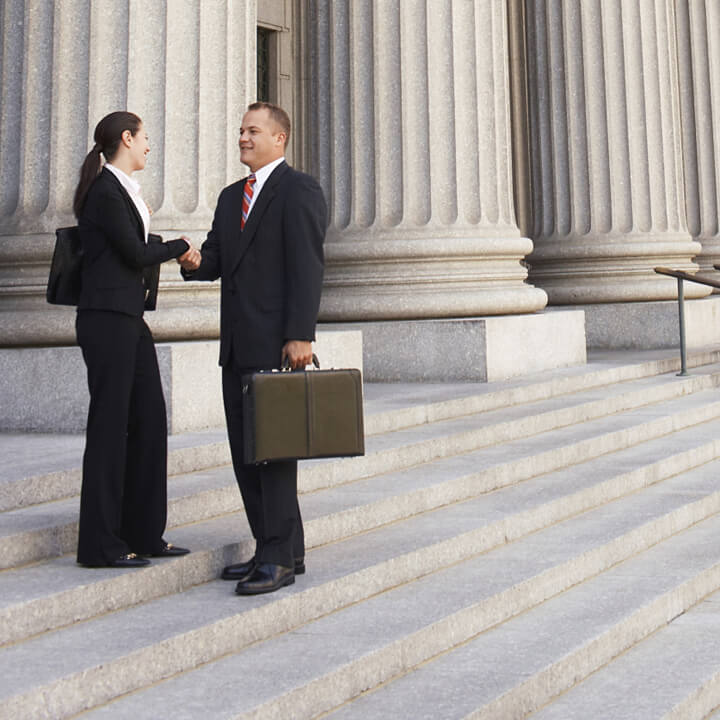Expert evidence: The essentials
18th February 2016
Expert evidence, including the extent to which it is required to resolve disputes and the role of the expert in litigation, has hit the legal headlines recently.
Recent cases
Against the background of the Royal Bank of Scotland ‘Rights Issue Litigation’ (in which a number of institutional investors are suing the bank for losses sustained after they invested in a rights issue in reliance upon an RBS prospectus which allegedly portrayed the bank’s financial health and stability in a more favourable light than was really the case), the High Court has made some important observations about the court’s duties in relation to expert evidence, as set out in Civil Procedure Rule (CPR) 35.1 [1].
In British Airways Plc v Spencer [2] the court comprehensively set out the factors a court will take into account when deciding whether or not to allow expert evidence.
The case of Wattret v Thomas Sands Consulting Ltd [3] considered the key principles governing the use, relevance and control of expert evidence, in the context of a professional negligence claim.
It is not necessary, in this article, to explain the particular facts of these cases. It is helpful to note, however, that, when read together, the judgments clarify the following essential practical pointers for adducing expert evidence in civil litigation.
Legal and practical advice
- It is for the court, not the parties, to determine whether expert evidence is required and the burden of proof lies on the party seeking to adduce the evidence.
- CPR 35.1 provides that “Expert evidence shall be restricted to that which is reasonably required to resolve the proceedings”. The rule is headed “Duty to restrict expert evidence” and it is expressed in mandatory terms. The message is clear that expert evidence will not be allowed lightly; but how will the court decide whether expert evidence is “reasonably required”?
- Firstly, what is expert evidence? In the RBS Litigation Mr Justice Hildyard made clear that there must be a recognised body of expertise, governed by recognised standards and rules of conduct, which is relevant to the question which the court must decide. Without that, evidence is not expert evidence, rather it is merely the subjective opinion of a witness. The latter would not be admissible.
- In addition, an expert must not find facts, attempt to advocate or express what he or she would have done in a particular situation. Rather, he or she must express an expert opinion on the basis of assumed facts.
- The court’s approach is then to ask whether expert evidence is necessary – that is, whether a decision can be made without it.
- If the expert evidence is not strictly necessary, then the court will consider whether it will be of assistance to the court.
- If the evidence will be of assistance to the court, it will be allowed if it is “reasonably required”. At this point the court will consider the facts of the case and a range of influencing factors including:
- The value of the claim;
- The effect of a judgment either way on the parties;
- Who is to pay for the expert;
- Case management issues, in particular whether allowing expert evidence will cause delay; and
- Proportionality.
- If the court concludes that expert evidence is allowed, it can impose case management controls.
- The court will be concerned to ensure that any evidence adduced is limited to that which is relevant to the question[s] before it. As well as making case management orders limiting the issues which expert evidence may address, requiring single joint experts in appropriate cases and even mandating the number of pages to which expert reports can run, the court can make adverse costs orders, even on an indemnity basis, against parties seeking to rely on expert evidence which goes beyond.
- Where a case concerns allegations of negligence on the part of a professional there is no absolute rule that expert evidence will be necessary.
- However the court will be reluctant to make a finding of professional negligence without evidence from those within the same profession as to the standard of skill and care expected, and the failure (or otherwise) of the defendant.
WM Comment
In the current climate of increasingly cost-conscious litigation, parties will be well advised to consider carefully, in every case, whether involving experts in their dispute will genuinely make it quicker and easier for the court to reach a decision on the questions that go to the heart of the case. Long gone are the days in which complex and voluminous expert reports could be used tactically to submerge opponents into submission. Indeed, any party who attempts to proceed in such a manner today will most likely receive short shrift from the court, and possibly an adverse costs order.
Where expert opinion is required and where a credible expert is properly instructed and efficiently and effectively offers an opinion which cuts to the chase, adducing expert evidence can be a valuable dispute resolution tool, which can even facilitate swift settlement.
If you would like any further advice or assistance on the use of expert evidence, or on any dispute resolution issue, please do not hesitate to contact any member of Walker Morris’ Litigation and Dispute Resolution department.
_____________________
[1] [2015] EWHC 3433
[2] [2015] EWHC 2477 (Ch)
[3] [2015] EWHC 3455 (TCC)

